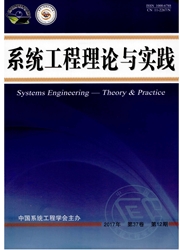

 中文摘要:
中文摘要:
本文选取香港股票市场的封闭式基金折价率,initial public offering(IPO)首日收益率,IPO数量,市场成交量和换手率等五个原始情绪指标,利用主成分分析法构造了综合投资者情绪指数,然后应用autoregressive moving average—generalized autoregressive conditional heteroskedasticity(ARMA—GARCH)族模型分别剔除了综合投资者情绪指数与香港恒生指数中的趋势因素和季节因素等外在影响,对ARMA—GARCH模型的残差作相关性分析和Granger因果关系检验.研究表明,ARMA—GARCH族模型能有效处理投资者情绪指数和香港恒生指数的自相关性和异方差性.Granger因果检验发现在短期内恒生指数收益率是投资者情绪的Granger原因,即当香港股市处于上升阶段时,投资者情绪会更加乐观,而当股市处于下降阶段时,投资者情绪则会变的更加悲观.
 英文摘要:
英文摘要:
Based on five original sentiment indicators in Hong Kong stock market, including the closedend fund discount rate, the average first-day returns of initial public offering (IPO), the number of IPO, the market trading volume and turnover, this paper uses the principal component analysis method to calculate a comprehensive investor sentiment index. After excluding the trend and seasonal factors from the comprehensive investor sentiment index and Hong Kong Hang Seng Index by autoregressive moving average-generalized autoregressive conditional heteroskedasticity (ARIVIA-GARCH) family models, this paper makes correlation analysis and Granger causality test on the residuals of ARMA-GARCH model. The study shows that ARMA-GARCH models can effectively process the autocorrelation and heteroscedasticity of investor sentiment index and Hong Kong Hang Seng Index. Also, it indicates that the Hang Seng index return is the Granger cause of investor sentiment in short terms while not in long terms. That is to say investor sentiment would be more optimistic in short terms when the Hong Kong stock market goes up, and vice versa.
 同期刊论文项目
同期刊论文项目
 同项目期刊论文
同项目期刊论文
 期刊信息
期刊信息
